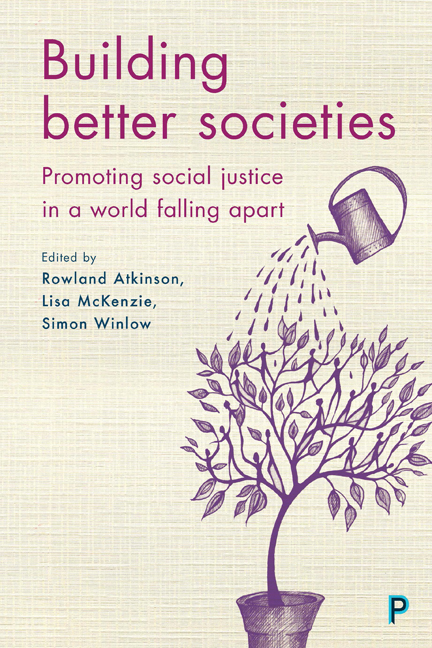Eight - Re-visioning exclusion in local communities
Published online by Cambridge University Press: 05 April 2022
Summary
In this chapter we consider ways in which a co-produced approach to research could enable an understanding of how communities might be different. Engagement with communities at all stages of research places collaborative and participatory research methods in a central role to widen the ways community partners and universities can work together. We consider the methodologies that can be used to think about accommodating diverse opinions and tacit knowledge within communities, as well as what this tells us about processes of exclusion and integration in local communities.
When universities work collaboratively with community partners, or individuals within communities, to shape or construct research together, this process develops in different ways. Universities have been conceived of as ‘anchor institutions’ that contribute to ‘place-making’, in the words of John Goddard (Goddard and Valence, 2013). Universities can be seen as spaces where people can think, they can provide funding for innovative research projects, they can support ways of knowing and reflective practice, creating ‘living knowledge’ in the process (Facer and Enright, 2016). They can, in an ideal world, support activist thinking, but they can also be imagined differently, as the ‘other’ that communities engage with that can sometimes be useful (Facer and Pahl, 2017).
We both come from an activist perspective (Kate as a community outreach worker and Paul as a political activist in parallel with his academic career), and arrived at universities and within our disciplines as people interested in how universities can learn from the outside world to effect social change. Both of us are currently involved in a project called ‘Imagine’ – a large Economic and Social Research Council (ESRC)-funded project exploring the social, historical, cultural and democratic context of civic engagement, with a focus on imagining different communities and making them happen. Over the past three years we have been working collaboratively with our partners in different communities to do research that matters to them. Kate has been working with community partners in Rotherham to help and support research that re-shapes and re-articulates the landscape of hope after the devastations and hurt of the Jay report into child sexual exploitation in Rotherham (Jay, 2014). Paul has been exploring ways of understanding national identities in the UK and ensuring that they represent histories of ethnic diversity, through working with community groups interested in black history and heritage in Huddersfield.
- Type
- Chapter
- Information
- Building Better SocietiesPromoting Social Justice in a World Falling Apart, pp. 95 - 110Publisher: Bristol University PressPrint publication year: 2017



